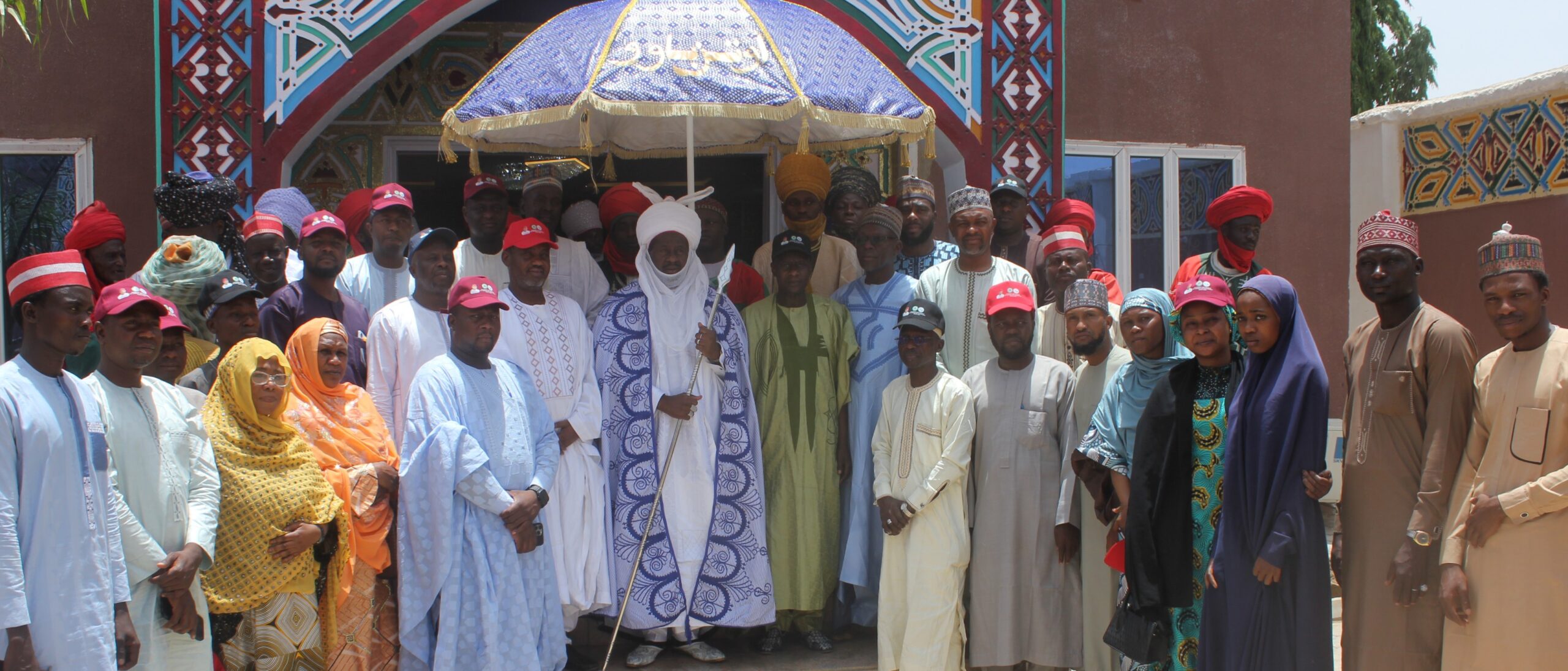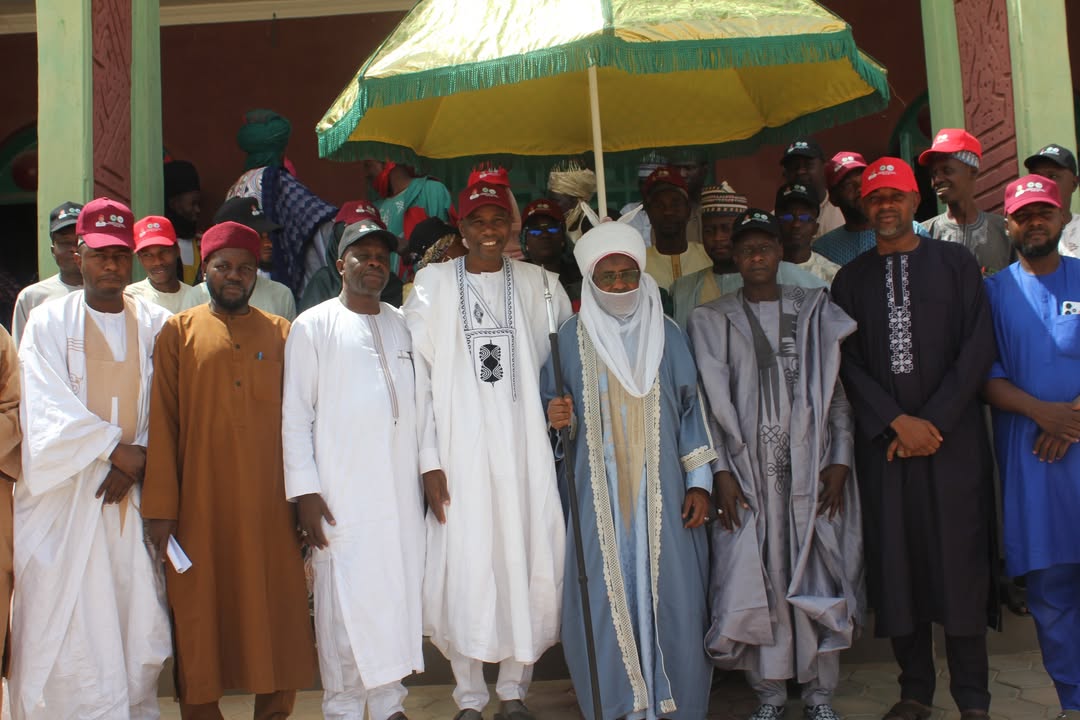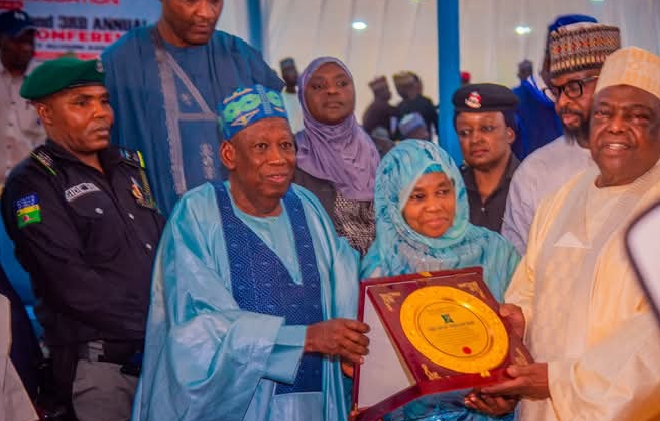Headlines
How gender stereotyping hampers girl child education in Jemagu town

Nasiru Yusuf Ibrahim
The trauma of not being able to get husbands after higher education has continued to discourage many parents in Jemagu from sending their girls to school, most especially as their boys hardly go beyond secondary school.
KANO FOCUS reports that in Jemagu town Warawa Local Government Area of Kano State, girls hardly go beyond secondary school because they would find it very difficult to marry as their men don’t usually go for those who go beyond that level.
Men in Jemagu believe that girls who go beyond secondary school would have experienced some social life that would make them very difficult to control. Residents said their children’s education, especially the girls, began and ended in Jemagu primary and secondary schools.

Babangida Adamu is among the men in Jemagu who believe that it is not proper to marry a girl who has gone beyond secondary school. He added that girls who acquire higher education would not like to marry men who have no formal education.

Babangida Adamu
“The truth is that any woman who acquired higher education would not like to marry a man with lower education. I will also not marry a girl who has university degree because I do not have a degree. This is why most men will not like to marry girls with higher education,” Adamu said.
A 25-year-old Khadija Muhammad Jemagu, who recently obtained a diploma in Marketing from the Kano State Polytechnic but does not have government job or husband, said she had resorted to helping a non-governmental organisation to promote girl-child education in her community. She believes there is the need to intensify awareness among parents on the importance of girl-child education.
According to Khadija, many people have told her that since she has chosen western education, it would be difficult for any man in her village to come close to her because the men believe that she is wiser than any man that may be willing to marry her since most of them do not have more than secondary education.
“Even before I finished my diploma, many people would go about saying that since my father had chosen to send us to school, they would see who would come and marry us. And for several years I have been living like this because in this our village, no man has ever come to me with marriage proposal, simply because I have a diploma,” she said.

Jemagu primary school
But despite this belief in Jemagu, some girls like Hussaina Muhammad are still trying to obtain a certificate on education, but there is no man within the community willing to marry her at the moment. She, however, insists that her educational ambition is a priority.
But Hussaina believes she can still get a husband within or outside her community provided she becomes well educated. She vowed that insult and discrimination from men within her village would not discourage her ambition.
“After secondary school, I started my National Certificate in Education (NCE) programme here in Warawa, but you know the belief our people. They see us as prostitutes; therefore, no one will come to offer his hand in marriage to us. But I will not be discouraged because I believe that whenever it is time for me to marry, God will definitely bring a husband for me,” she said.
Zainab Makera was able to get married after secondary school. She wants to proceed but is faced with a difficult choice – to further her education or stay with her husband. She said she had been trying to convince her husband to allow her continue but she was told that if she really wanted to continue with her education, she had to get divorced.

Zainab Makera
Meanwhile, few women who were able to convince their husbands to allow them proceed beyond secondary school “are constantly being rejected by community members,” said Hussaina.
According to education authorities in Warawa Local Government, this belief is not the only problem affecting girl-child education in Jemagu.
Lack of commitment by parents, especially mothers, may have worsened the situation over the years.
“There are several reasons why girls don’t go to school frequently; few of them have to do with the attitude of their parents, especially women who often sent their female children for hawking and other domestic works that stop them from attending classes,” said Munnir Muhammad, an education secretary in Warawa.
On the issue of girls not being able to get husbands after attending higher institution at Jemagu, Munnir believes that the problem is not only in Jemagu or Warawa Local Government.
“It is a general societal problem in northern Nigeria, where men, especially those with formal education usually reject women with higher education. Additionally, the government is working with parents-teachers associations, mothers associations and other relevant stakeholders to improve girl-child education in Warawa Local Government.”

Jemagu town, Warawa local government area
Meanwhile, residents said apart from poverty among the local community, lack of awareness by government authorities and poor education infrastructure, the problem of water supply in Jemagu village is forcing many children, especially girls, to skip school because they have to travel long distance to fetch water for the house. But government authorities assured that the problem of water supply in this village would soon be a thing of the past.
While recognising the threat of rejecting girls beyond secondary school as a major problem affecting girl-child education in the area, the caretaker chairman of Warawa Local Government, Lamido Sanusi, acknowledged that the problem of water is another major issue at Jemagu village. He said their ambition was to ensure that every girl-child is educated from primary school to university level without any form of discrimination across all villages and towns of Warawa Local Government.

Headlines
Emir of Rano lauds AGILE for educational intervention

Aminu Abdullahi
The adolescent girls initiative for learning and empowerment AGILE has been described as a major catalyst to educational development.

KANO FOCUS reports that the Emir of Rano, Alhaji Muhammad Isa Umaru, made the indication while receiving AGILE team in his palace.
According to him, Kano has witnessed significant progress in girl child education facilitated by AGILE, hence the need for traditional institutions and relevant stakeholders to contribute their quota to achieve the desired objectives.
He noted that, Rano Emirate has been at the forefront of ensuring enrollment retention and completion of girls education through various initiatives.
The emir called on the Adolescent Girls Initiative for Learning and Empowerment (AGILE) to upgrade the girls school in his community.
The monarch said, the school, located beside the palace, requires expansion to accommodate a larger number of students.
The traditional ruler suggested that AGILE should visit the school to assess its condition, saying that, relocating the school to a bigger location had been earlier considered.
In his remarks the permanent secretary Kano state ministry of education Alhaji Bashir Baffa explained that, they were at the palace to seek for support and blessings form the royal father.
He said, AGILE has fostered an enabling environment for girls through promoting behavioral changes through communication campaigns engagement with traditional rulers and advocacy.
He maintained that, the team has embarked on advocacy visits to all relevant stakeholders at community and state levels on the importance of girls education.
Alhaji Baffa hinted that the state government had declared a state of emergency on education, hence the need for the traditional institution to contribute its quota to achieve the desired objectives.
He posited that, the team will visit the school to see possible ways of intervening for the development of education.
The permanent secretary also used the opportunity to condole Rano emirate over the killing of its indigenes in Uromi.
KANO FOCUS reports that, earlier the team has paid a similar visit to Karaye Emirate council as part of efforts to advocate for support from the traditional institution and relevant stakeholders.

Headlines
Kano AGILE renovates 1,300 schools, enrolls 30,000 girls in three years

Aminu Abdullahi Ibrahim
The Kano State Ministry of Education’s Adolescent Girls Initiative for Learning and Empowerment (AGILE) Project, supported by the World Bank, has successfully renovated over 1,300 senior and junior secondary schools in the state in the last three years.
KANO FOCUS reports that the state commissioner for education, Alhaji Ali Haruna Makoda, disclosed this during a visit to the Karaye Emirate on Tuesday.

He added that the AGILE program has enrolled more than 30,000 girls through targeted outreach, grants, and its Second Chance education initiative.
Makoda further revealed that the state government has finalized plan to construct 130 new schools in rural communities, with over 35,000 girls already benefiting from financial assistance under the scheme.
He urged the Karaye Emirate to lend full support to the program and prioritize girls’ education.
In his remarks, the Emir of Karaye, Alhaji Muhammad Maharaz, pledged the emirate’s commitment to advancing girls’ education in Kano State.
He commended the state government and the commissioner for their dedication to the programme’s success.
“It is our collective responsibility to support this initiative,” the Emir stated, calling for measures to ensure beneficiaries complete their education with strong academic outcomes.
The commissioner’s delegation consist of the Kano State AGILE Project Coordinator, Malam Mujitapha Aminu and other members of State Programme Implementation Unit (SPIU).

Headlines
BUK Faculty of Education celebrates 50 years anniversary, launches Alumni Association

Aminu Abdullahi Ibrahim
Bayero University Kano (BUK) on Monday celebrated the 50th anniversary of its Faculty of Education and inaugurated its Alumni Association at the Convocation Arena of the university’s new campus.

KANO FOCUS reports that the event was graced by government officials, education stakeholders, and alumni all gathered to commemorate the faculty’s contributions to Nigeria’s educational sector.
In her keynote address, the State Minister for Education, Mrs. Suwaiba Sa’id Ahmad announced the Federal Government’s Sector Renewal Initiative designed to transition Nigeria from a resource-based to a knowledge-based economy.
She highlighted that the aim of the renewal initiative consists of – Reducing the number of out-of-school children; combating learning poverty; nhancing skills development and human capital for the labor market
The minister noted that the initiative prioritizes Technical and Vocational Education and Training (TVET); Science, Technology, Engineering, and Mathematics (STEM); Digital literacy and education quality assurance.
Mrs. Ahmad disclosed that the Federal Government had disbursed ₦35 billion to 261 beneficiaries under the Nigerian Education Loan Fund (NELFUND), with BUK among the top beneficiaries.
“So far, the scheme has received 420 applications, and we are scaling up investments,” she stated.
She further confirmed that President Bola Ahmed Tinubu approved ₦120 billion to boost TVET programs, with plans to train 650 youths in technical, vocational, and digital skills over the next two years.
Emeritus Professor Sani Ahmad Sufi, former Permanent Secretary of the Ministry of Education, praised the faculty for its high-quality graduates.
“Our pride lies not just in the number of graduates produced yearly, but in their impact across Nigeria and beyond,” he said.
He added that the faculty has produced Nigeria’s largest pool of graduate teachers many of whom hold key positions nationally and internationally.
The National Chairman of the All Progressives Congress (APC), Dr. Abdullahi Umar Ganduje applauded the faculty for its significant role in advancing education in Nigeria.
The event concluded with awards presented to distinguished alumni and supporters of the faculty in recognition of their contributions to its growth.














